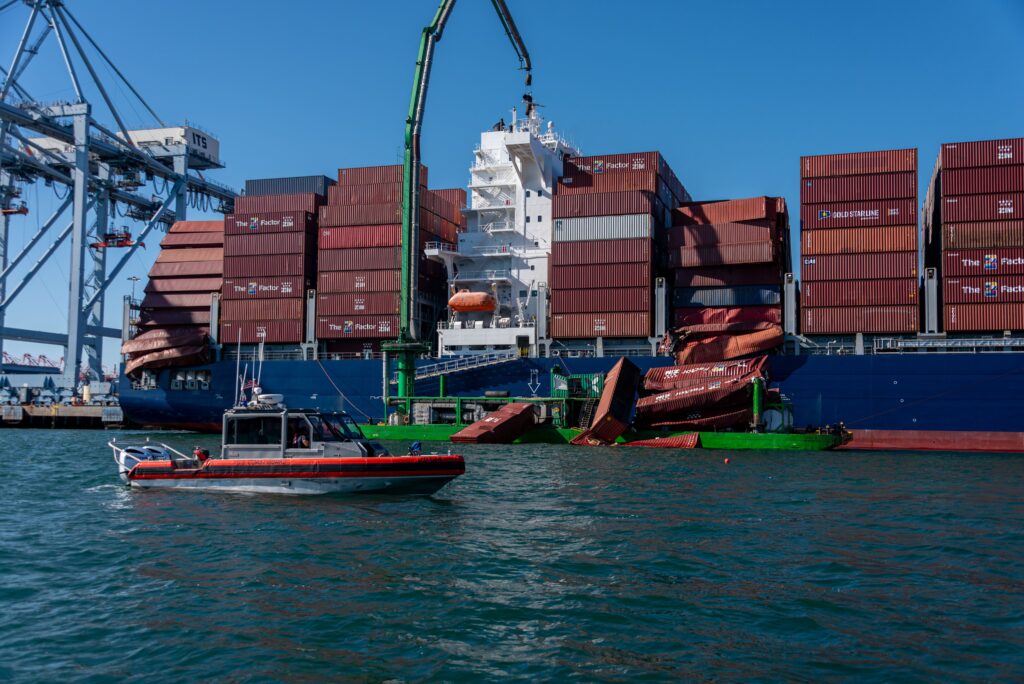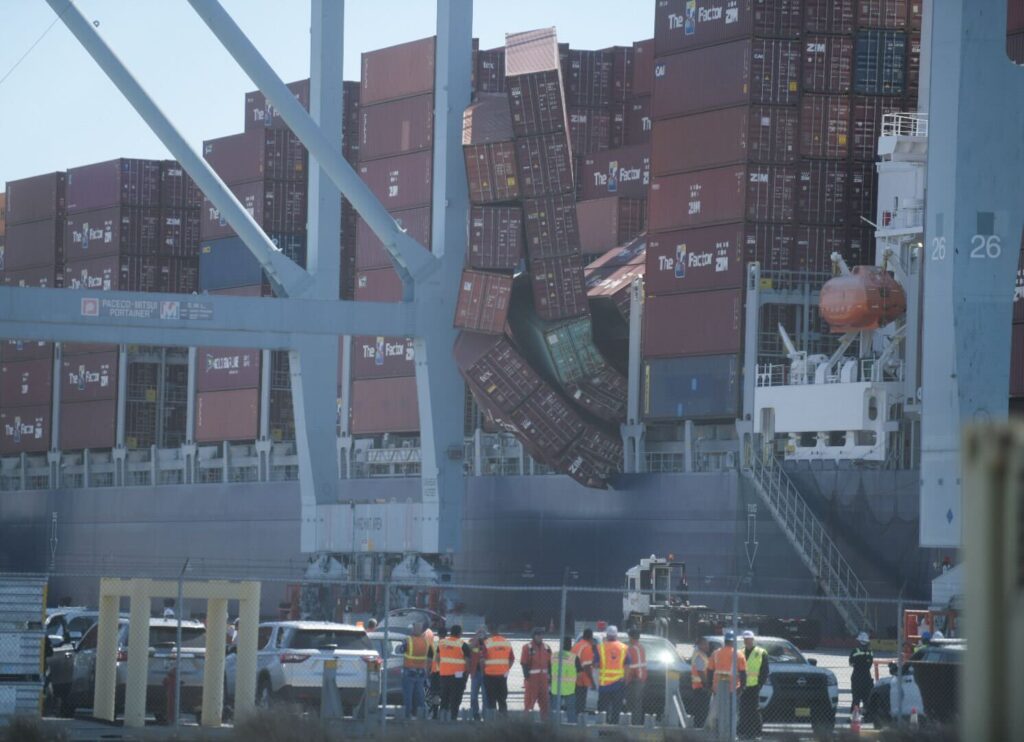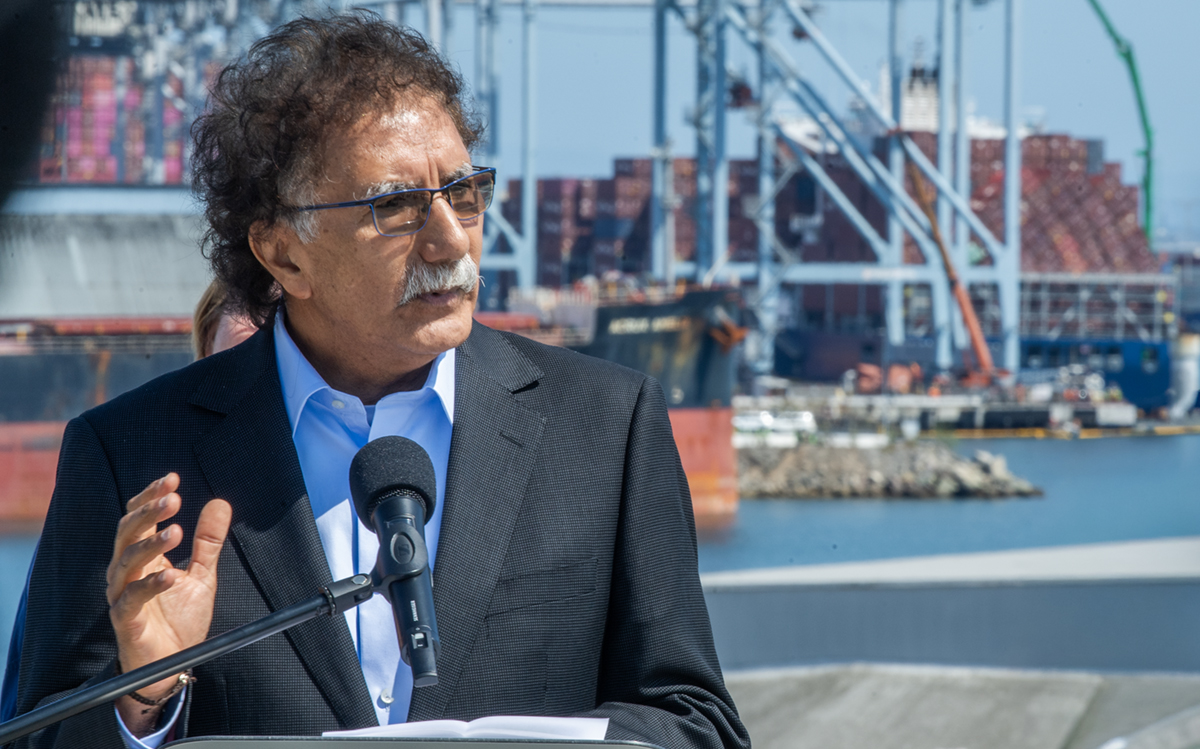A day after 75 containers fell from a ship at the Port of Long Beach, officials were still attempting to determine what caused the apparent accident and did not have an estimate for when they would be able to remove roughly 30 containers that remained submerged.
The cargo fell from the container ship Mississippi just before 9 a.m. Tuesday, while it was docked at Pier G. They damaged a smaller clean-air barge, which was connected to the Mississippi to capture emissions.
One of the workers aboard the barge sprained his ankle as he hurried to avoid further injury, but he wasn’t seriously hurt, officials said at a news conference Wednesday.
The incident spilled dozens of containers into the water, onto the docks and left more leaning precariously off the side of the ship or against a nearby crane.
The scope of the spill was “unprecedented,” said Port CEO Mario Cordero. Containers are sometimes dropped or spilled at the port, but hardly if ever on this scale, officials said.

E-bikes, power cables, boys’ clothing and nitrous oxide were among the goods inside the various containers that tumbled from the ship, said Jaime Ruiz, a spokesperson for U.S. Customs and Border Protection.
As of Wednesday afternoon, crews were still working to stabilize leaning container stacks aboard the Mississippi and were not able to go onboard either ship, port officials said. The Mississippi was carrying slightly more than 2,400 containers.
Investigators were still working to determine a cause for the spill, but during the press conference, International Longshore Warehouse Union Local 13 president Gary Herrera asserted there was no “human error” on the part of his union’s members.

As of Wednesday afternoon, there was no timeline for pulling the submerged containers from the water, said U.S. Coast Guard Captain Stacey Crecy.
Surveyors were sent out to locate them, she said, and the next step is to approve a plan for a crane to pick them out of the water and place them at a secure location.
Pier G reopened to trucks Tuesday afternoon, and everything except for the one berth containing the Mississippi is “fully operational,” Cordero said.

